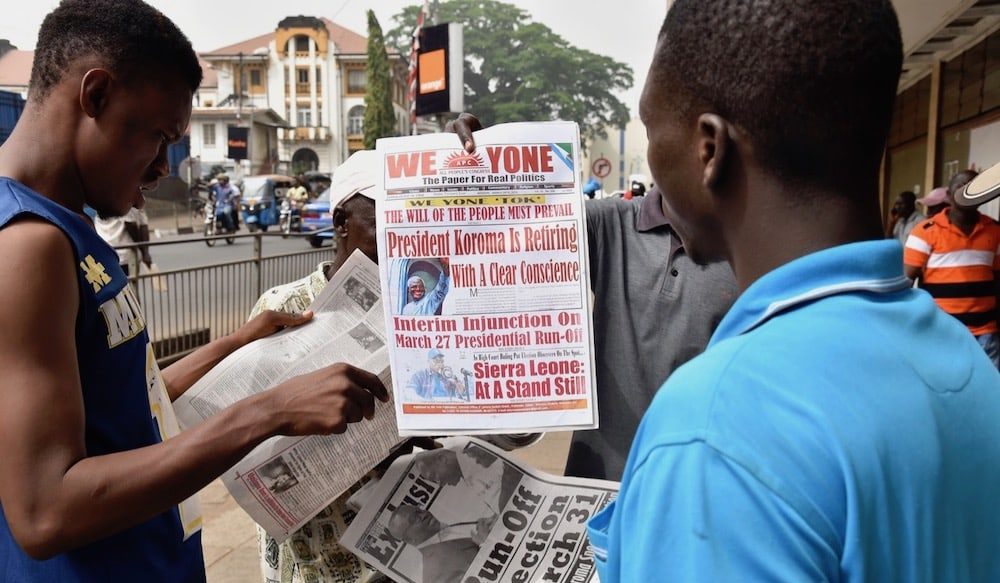Sierra Leone has made significant strides in press freedom, moving up from the 74th position in 2023 to the 64th spot out of 180 countries in the latest Reporters Without Borders World Press Freedom Index.
Despite the decriminalization of press offenses during President Julius Maada Bio’s first term, concerns about press freedom violations have surfaced since his reelection in 2023, according to the report
Sierra Leone boasts a diverse and generally independent media sector. With a total of 531 media outlets as of the end of 2022, including radio stations, newspapers, magazines, and TV channels, the media landscape is robust. And private owned media outlets remains the most popular, followed by TV, with community radio stations covering much of the country.
While most media outlets operate independently from direct political control, financial constraints and poor management often lead to political influence. Journalists have the freedom to investigate various subjects, including politically sensitive ones, although accessing information from public institutions can be challenging.
Legal reforms have strengthened media regulation, with the Independent Media Commission (IMC) assuming responsibility for media oversight. Media laws and policies are developed in consultation with key stakeholders, including the IMC and the Sierra Leone Association of Journalists (SLAJ).
Freetown remains the hub for media outlets, but many journalists struggle with low wages and inadequate equipment, which politicians sometimes exploit for favorable coverage. While most media outlets rely on advertising revenue, the market is limited, and independent outlets lack government subsidies.
Journalists enjoy relative freedom to cover social issues without censorship, although the spread of political propaganda and hate speech through social media poses challenges. Attacks against journalists based on gender, status, ethnicity, or religion are rare but not unheard of.
Election periods are often marred by violence against journalists, with political activists being the primary perpetrators. Journalists also face threats, online harassment, and equipment confiscation by law enforcement, especially when working on sensitive investigations.
Despite these challenges, Sierra Leone’s upward trajectory in the World Press Freedom Index reflects ongoing efforts to strengthen media freedom and promote journalistic integrity in the country.











